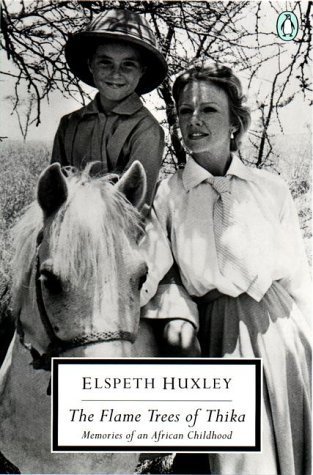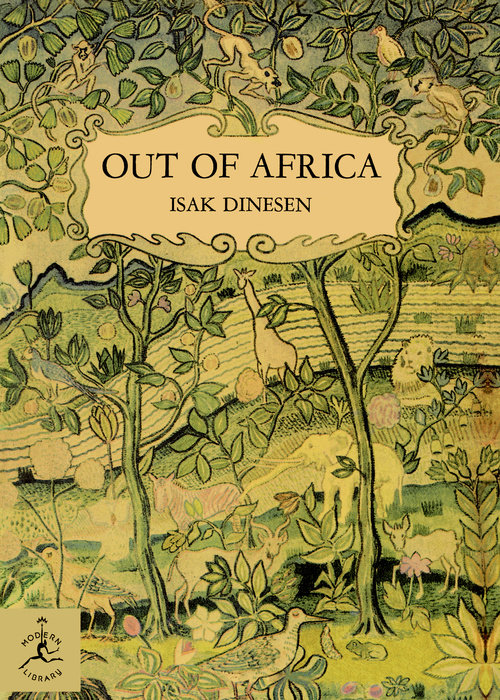
Out of Africa / Shadows on the Grass
Book Description
Amidst the sprawling landscapes of Kenya, love and loss dance in a delicate balance. The heart of a woman beats fiercely through tales of adventure, heartbreak, and deep connections with the people and wildlife around her. Shadows of cultural clashes loom large, as unexpected friendships bloom and the vibrant spirit of Africa beckons. Rich within its beauty are stories of resilience, longing, and the haunting pull of a home that is both familiar and distant. Can one truly belong to two worlds, or will the echoes of a life left behind forever haunt the soul?
Quick Book Summary
"Out of Africa / Shadows on the Grass" is Isak Dinesen's poignant memoir chronicling her years managing a coffee farm in colonial Kenya in the early 20th century. With luminous prose, Dinesen recounts her encounters with the land, its people—including local Kikuyu, Somali, and Maasai communities—and the wildlife that surrounded her. Through stories of adventure, heartbreak, colonial tensions, and enduring friendships, she explores her complex relationship with Africa, capturing both the beauty and pain of a world to which she felt deep, sometimes conflicting, attachments. The companion collection, "Shadows on the Grass," extends these reflections in later essays, offering a meditative coda on memory, loss, and the indelible imprint of Africa on her soul.
Summary of Key Ideas
Table of Contents
Connection and Alienation in a Foreign Land
Isak Dinesen's memoir unfolds as a lyrical tribute to her years spent on a coffee plantation outside Nairobi. The narrative is suffused with her keen observations of Kenya's vast landscapes, teeming with wildlife and painted in striking light. The farm is a place where day-to-day life mingles with the extraordinary: hunting lions, enduring droughts, and cultivating crops. Yet, the land is never wholly hers, underscoring the paradox at the heart of the colonial experience—a sense of deep belonging entwined with perpetual foreignness.
Relationships with African People and Cultures
Central to Dinesen’s story are her relationships with the various African peoples she meets. Her interactions with the Kikuyu workers who live on her farm, the proud Somali servant Farah, and the enigmatic Maasai reveal a profound curiosity and respect, though they are marked by the complexities and imbalances inherent in colonial society. These connections oscillate between genuine friendship and the undeniable presence of cultural, social, and linguistic barriers.
The Natural World: Beauty and Challenge
The memoir reverberates with accounts of inner and outer adventure—epic hunting expeditions, the challenge of managing a failing coffee crop, and intimate moments with both human and animal companions. The natural world is ever-present, its beauty breathtaking yet tinged with danger, its rhythms shaping and threatening her endeavors. Encounters with wildlife, from graceful gazelles to stalking lions, leave lasting imprints on Dinesen’s spirit and prose.
Love, Loss, and Resilience
Amid these experiences, Dinesen navigates personal heartbreak and loss. The dissolution of her marriage and the eventual failure of the farm shadow her rich interludes of joy and camaraderie. Throughout, she exhibits resilience, finding meaning in the relationships she forms and the emotional truths she uncovers. The friendships she forges, particularly with figures like Denys Finch Hatton, are a lodestar in her emotional landscape, symbolizing both intimacy and longing.
Memory, Nostalgia, and the Meaning of Home
As the narrative transitions to "Shadows on the Grass," Dinesen reflects on Africa from the distance of memory. These essays revisit the people, places, and animals she cherished, suffused with nostalgia and longing for a home forever altered. She contemplates the challenges of belonging and the enduring pull of a land that shaped her identity. Ultimately, her memoir is a meditation on how memory and place intertwine, shaping a sense of self that is both rooted in and exiled from the landscapes of the past.
Download This Summary
Get a free PDF of this summary instantly — no email required.





